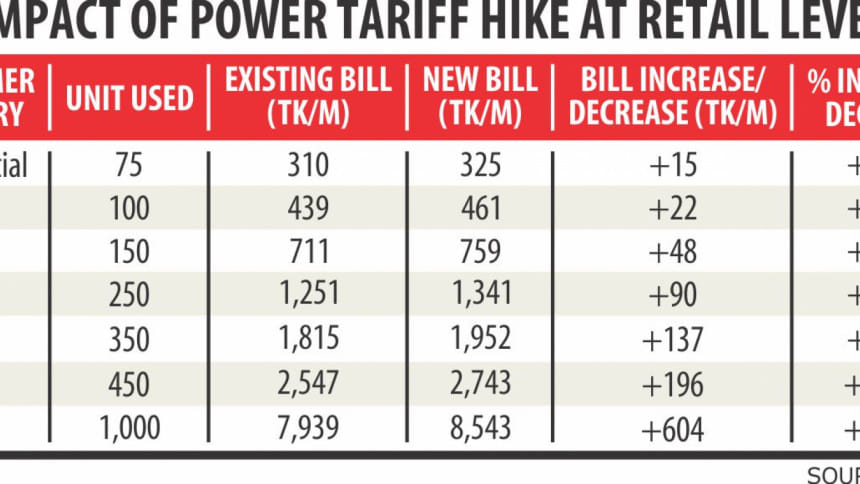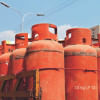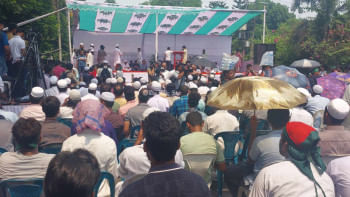Power tariff to rise from December

Much to the chagrin of consumers, rights groups and businesses, the Bangladesh Energy Regulatory Commission (BERC) yesterday raised the power tariff by 5.3 percent or Tk 0.35 per kilowatt-hour unit on an average.
The new tariff will come into effect from December 1, said BERC Chairman Monowar Islam while announcing the decision at his office.
The tariff was hiked to meet the revenue requirement of power distributors.
The price was increased just a day after a United Nations Conference on Trade and Development report said 53 percent of the enterprises in Bangladesh identify the lack of consistent access to energy as the major barrier to higher production.
BERC said while fixing the new rate, the commission has taken into consideration the interests of all consumers, including companies, industries and people of low-income groups.
But the commission did not raise bulk power tariff demanded by Bangladesh Power Development Board (BPDB) because of a government promise to provide Tk 3,600 crore as subsidies.
This is the eighth retail power tariff hike in the last eight years, and the previous one was in September 2015.
Meanwhile, in a press release yesterday, left-leaning political parties announced that they would observe a half-day hartal across the country on November 30, protesting the hike.
The commission, however, withdrew the minimum charge for the use of power, giving some comfort to poor households who consume very low amount of electricity.
The marginal power consumers are charged Tk 90 a month by Bangladesh Rural Electrification Board and Tk 100 a month by the BPDB even if they consume electricity worth less than that amount.
As a result, the monthly bill for 30 lakh consumers, who use less than 50 units and account for 13 percent of all consumers in the country, will go down from next month, said the commission in a statement.
It also said the tariff hike would not affect 38 percent of consumers.
The retail rate for households using 0-50 unit has been fixed at Tk 3.50 per unit; 0-75 unit at Tk 4 per unit; 76-200 unit at Tk 5.45 per unit; 201-300 unit at Tk 5.70 per unit; 301-400 unit at Tk 6.02 per unit; 401-600 unit at Tk 9.30 per unit and above 600 units at Tk 10.72 per unit.
Per unit power cost for irrigation pumps will be Tk 4.
Small industries will have to pay Tk 8.20 to Tk 9.84 a unit, depending on the period of the day.
Educational and religious institutions, charities and hospitals will have to spend Tk 5.73 for using every unit of power, while per unit power cost for street lamps, water pumps and battery charging will be Tk 7.70.
Depending on the day, commercial users and offices will have to pay Tk 10.30 to Tk 12.36 per unit.
In February this year, the Bangladesh Power Development Board submitted a proposal to increase the bulk power tariff to Tk 5.59 a unit from Tk 4.87, which is a 14.78 percent hike.
The BPDB had sought a 14.78 percent hike while other power distributors demanded up to 22 percent increase at retail level.
Prof Shamsul Alam, energy adviser to the Consumers Association of Bangladesh (CAB), said the proposals to increase the power tariff were not logical. “During the hearings, the proposals could not be justified. Still, the tariff was hiked.”
Measures like producing less power burning diesel and rationalising capacity payment (payments for being available to produce power) for rental and quick rental power plants could have saved at least Tk 7,843 crore in 2015-16 fiscal year or Tk 1.56 per unit, according to the CAB.
The savings would have brought down the bulk rate, which would have reflected in the retail rate, Shamsul added.
Ahsan H Mansur, executive director of the Policy Research Institute of Bangladesh, said the tariff of electricity has reached a level that is going to make Bangladesh uncompetitive in the export market.
“Bangladesh used to enjoy an advantage in the export market because of cheap electricity price. That advantage has already eroded. Now we are getting into an area where we already have costly electricity. The trend is that it would go up further.”
He said unfortunately, the government was not focusing on how to make electricity more affordable and did not pay enough attention to setting up medium to large power plants and coal-based power plants and accelerating power imports from India.
“Electricity in India is quite cheap and available on the trading floor. All you need is regulatory framework and permission so the private sector, as well as BPDB, can import electricity by taking part in the auction. Indian producers would also like to export power to Bangladesh because they have overinvested in the sector.”
The BERC held a series of public hearings on the proposals of state-owned power distributors from September 25 to October 5.
It also held a special public hearing on power tariff reduction proposal placed by the CAB to reduce the bulk power tariff.
The CAB had proposed reducing the bulk tariff price by Tk 1.32 per unit by taking different measures and implementing the previous BERC order to ensure the purchase of lowest-cost electricity by the BPDB.

 For all latest news, follow The Daily Star's Google News channel.
For all latest news, follow The Daily Star's Google News channel. 







Comments